Cover
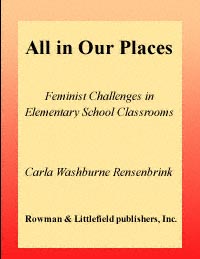
| title | : | All in Our Places : Feminist Challenges in Elementary School Classrooms |
| author | : | Rensenbrink, Carla Washburne. |
| publisher | : | Rowman & Littlefield |
| isbn10 | asin | : | 084769478X |
| print isbn13 | : | 9780847694785 |
| ebook isbn13 | : | 9780585384641 |
| language | : | English |
| subject | Sexism in education--United States, Women teachers--United States--Social conditions, Discrimination in education--United States, Education (Elementary)--Social aspects--United States. |
| publication date | : | 2001 |
| lcc | : | LC212.82.R45 2001eb |
| ddc | : | 306.43/2/0973 |
| subject | : | Sexism in education--United States, Women teachers--United States--Social conditions, Discrimination in education--United States, Education (Elementary)--Social aspects--United States. |
Page i
All in Our Places
Page ii
Page iii
All in Our Places
Feminist Challenges in Elementary School Classrooms
Carla Washburne Rensenbrink
ROWMAN & LITTLEFIELD PUBLISHERS, INC.
Lanham Boulder New York Oxford
Page iv
ROWMAN & LITTLEFIELD PUBLISHERS, INC.
Published in the United States of America
by Rowman & Littlefield Publishers, Inc.
4720 Boston Way, Lanham, Maryland 20706
http://www.rowmanlittlefield.com
12 Hid's Copse Road, Cumnor Hill
Oxford OX2 9JJ, England
Copyright 2001 by Rowman & Littlefield Publishers, Inc.
Extract on page 105 from I Shall Not Be Moved by Maya Angelou, copyright 1990 by Maya Angelou. Used by permission of Random House, Inc.
All rights reserved . No part of this publication maybe reproduced, stored in a retrieval system, or transmitted in any form or by any means, electronic, mechanical, photocopying, recording, or otherwise, without the prior permission of the publisher.
British Cataloguing in Publication Information Available
Library of Congress Cataloging-in-Publication Data
Rensenbrink, Carla Washburne, 1937
All in our places : feminist challenges in elementary school classrooms / Carla Washburne Rensenbrink.
p. cm.
Includes bibliographical references and index.
ISBN 084769478X(alk. paper)ISBN 0847694798(pbk. : alk. paper)
1. Sexism in educationUnited States.2. Women teachersUnited StatesSocial conditions. 3. Discrimination in educationUnited States.4. Education (Elementary)Social aspectsUnited States. I.Title: Feminist challenges in elementary school classrooms. II. Title.
| LC212.82 .R45 2001 |
| 306.4320973dc21 |
| 00059223 |
Printed in the United States of America
 The paper used in this publication meets the minimum requirements of American National Standard for Information SciencesPermanenceof Paper for Printed Library Materials, ANSI/NISO Z.39.481992.
The paper used in this publication meets the minimum requirements of American National Standard for Information SciencesPermanenceof Paper for Printed Library Materials, ANSI/NISO Z.39.481992.
Page v
for Lucy, Marcia, Rosemary
Page vi
Page vii
Contents
| Preface | ix |
|
| 1. Feminism and Teaching | 1 |
| 2. Lucy: A Search for Self-Definition | 21 |
| 3. Rosemary: Finding a Political Voice | 67 |
| 4. Marcia: A Sense of Community | 105 |
| 5. Three Teachers | 143 |
|
| Appendix A: Preliminary Interview | 155 |
| Appendix B: Interview Guides | 157 |
| Appendix C: Data Collection | 161 |
| Bibliography | 163 |
| Index | 167 |
| About the Author | 171 |
Page viii
Page ix
Preface
 ext there was a small mom-and-pop store. Mom and Pop were crusty, (doortotheelementaryschoolwhereItaughtformanyyears)hardworking people. They put in long hours. When we teachers went in to buy a sandwich or a cup of coffee that was marginally fresher than ours, they would make wry comments about how short our day was, how numerous our vacations, how soft our job. Then ,their daughter became a first grade teacher in a nearby town. Gradually, their tune changed. They became sympathetic and respectful. They would ask how things were going next door. When we came in to grab a bite between school and a meeting, they would say, Here you go, Teach. You need it.
ext there was a small mom-and-pop store. Mom and Pop were crusty, (doortotheelementaryschoolwhereItaughtformanyyears)hardworking people. They put in long hours. When we teachers went in to buy a sandwich or a cup of coffee that was marginally fresher than ours, they would make wry comments about how short our day was, how numerous our vacations, how soft our job. Then ,their daughter became a first grade teacher in a nearby town. Gradually, their tune changed. They became sympathetic and respectful. They would ask how things were going next door. When we came in to grab a bite between school and a meeting, they would say, Here you go, Teach. You need it.
You have to be very close, I think, to a person who is an elementary school teacher in order to have an inkling of the demands of the job. Elementary school teaching, like other forms of women's work, is devalued and made invisible in this culture. The complexity and difficulty of the job are vastly misunderstood and underestimated.
In this book, I try to get closer to that work through a careful examination of three classrooms. I present life histories of the three teachers and try to foreground their insights, questions, and goals as we look together at their teaching practice. The teachers all call themselves feminists , and they are concerned about the meaning of that term in their teaching. They try to understand all their students and to build relationships with them. They strive to move beyond tolerance to a true celebration of differences and to the creation of community. They question their own practice and struggle to find ways to teach, to empower, and to love their students.
Page x
Their classrooms are full of energy, noise, humor, pain, love, purpose, and confusion. There is always a lot more going on than any teacher can possibly know, and even with the extra eyes of the researcher, only a small part of this intricate, microcosmic world can be recorded and examined. It is important to keep in mind that this overwhelming number of events and amount of detail is the reality of teachingand of research about teaching.
This account is also the story of my own changing perspective, which came about as a by-product of doing research. I started with a long-standing interest in gender issues, but I began to see more clearly how gender is complicated by and inseparable from other factorsrace, class, sexuality, ability, wealth. I tried to keep multiple perspectives in mind, but perhaps the hardest thing for me was to recognize how sometimes I did not see what was perfectly plain to someone else or failed to make room for another perspective. Talking with the teachers and getting feedback from friends and colleagues have helped me fill in some gaps, see a little more deeply, be more conscious of how my own perspective can blind me to certain things. In this book I will show some of the things I missed or misunderstood and how I came back to them later and saw them differentlyin hopes of presenting an ever-broadening perspective. I am afraid that many gaps and blind spots remain. As teachers, there is so much that we need to know, so much we do notor cannotsee. These three teachers, because of their openness, reflectiveness, and self-awareness, can, I believe, help us to see more.
Next page

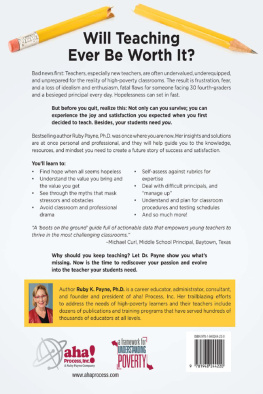
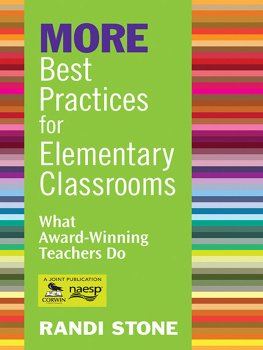
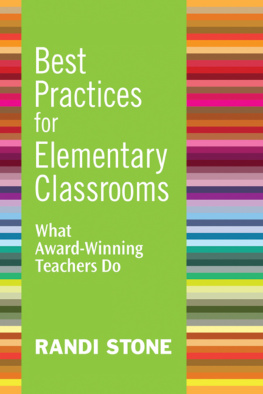
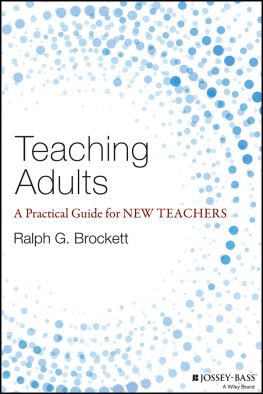


 The paper used in this publication meets the minimum requirements of American National Standard for Information SciencesPermanenceof Paper for Printed Library Materials, ANSI/NISO Z.39.481992.
The paper used in this publication meets the minimum requirements of American National Standard for Information SciencesPermanenceof Paper for Printed Library Materials, ANSI/NISO Z.39.481992. ext there was a small mom-and-pop store. Mom and Pop were crusty, (doortotheelementaryschoolwhereItaughtformanyyears)hardworking people. They put in long hours. When we teachers went in to buy a sandwich or a cup of coffee that was marginally fresher than ours, they would make wry comments about how short our day was, how numerous our vacations, how soft our job. Then ,their daughter became a first grade teacher in a nearby town. Gradually, their tune changed. They became sympathetic and respectful. They would ask how things were going next door. When we came in to grab a bite between school and a meeting, they would say, Here you go, Teach. You need it.
ext there was a small mom-and-pop store. Mom and Pop were crusty, (doortotheelementaryschoolwhereItaughtformanyyears)hardworking people. They put in long hours. When we teachers went in to buy a sandwich or a cup of coffee that was marginally fresher than ours, they would make wry comments about how short our day was, how numerous our vacations, how soft our job. Then ,their daughter became a first grade teacher in a nearby town. Gradually, their tune changed. They became sympathetic and respectful. They would ask how things were going next door. When we came in to grab a bite between school and a meeting, they would say, Here you go, Teach. You need it.